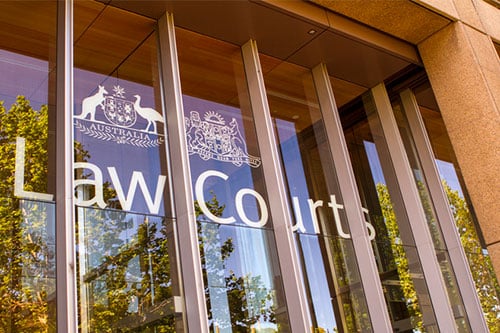
Top legal body says that a key distinction means a world of difference to how the statement is respected

The Law Council of Australia says that a key misunderstanding of the Uluru Statement from the Heart by the government means a world of difference to how the statement is respected.
Last week, Minister for Indigenous Australians Ken Wyatt AM announced a collaborative design process that will “provide a voice for Indigenous Australians to government.” Arthur Moses SC, Law Council president, said that the Morrison government has not understood, let alone adopted, the Uluru Statement.
Moses said that the statement is a result of one of the most comprehensive consultations of Indigenous Australians in the nation’s history. He said that the criticism is not directed towards Wyatt but to “those within the government who unfairly and in a pre-emptive manner dismissed the concept of a voice to Parliament without properly understanding it.”
‘Voice to Parliament’
The distinction between a “voice to Parliament” and a “voice to government” is significant, Moses said.
“The whole point of the voice to Parliament is to ensure that our First Nations peoples have an opportunity to propose bills, be consulted on bills, and to express their views on bills before they are enacted as laws of the Commonwealth which may impact upon First Nations peoples. This includes bills about fundamental issues which matter on the ground to First Nations peoples, such as health, welfare and education,” he said. “What is being proposed is a voice to government, not to Parliament. If it is not constitutionally enshrined but legislated it could be abolished at any time if the government does not like what it was saying.”
Moses said, however, that the Law Council will engage with the senior advisory group on ensuring Indigenous Australians getting the “voice” they meant in the Uluru Statement.
“I have deep respect for the co-chairs of the group, Marcia Langton AM and Tom Calma AO. I particularly note the comments by Professor Langton that she supports the voice to Parliament and that the Uluru Statement requires ‘design work to turn it into a reality that governments can understand,’” Moses said. “The advisory group should be allowed to consult on an option that will allow the voice to be constitutionally enshrined.”
Third chamber
Moses also highlighted statements by Murray Gleeson AC QC and Robert French AC, former chief justices of the High Court, who have said recently that an Indigenous-Australian voice to parliament enshrined in the Constitution will not mean the formation of a third chamber of the legislative branch. The call is for Indigenous Australians to have a “voice to Parliament” and not a “voice in Parliament,” they said.
“It is vital that the development of meaningful policy and law reform at federal, state and territory levels, is informed by Indigenous experience and advice. The stark reality is that Indigenous affairs in this country have consistently faltered in large part because Parliament has not listened to the voices of Aboriginal and Torres Strait Islander peoples,” Moses said. “What is being proposed now disrespects our First Nations peoples by ignoring the Uluru Statement and ignores the powerful support of the voice to Parliament by former Chief Justices French and Gleeson.”
Earlier this year, 18 leading law firms endorsed the Uluru Statement, which is the product of 13 regional dialogues held across Australia.